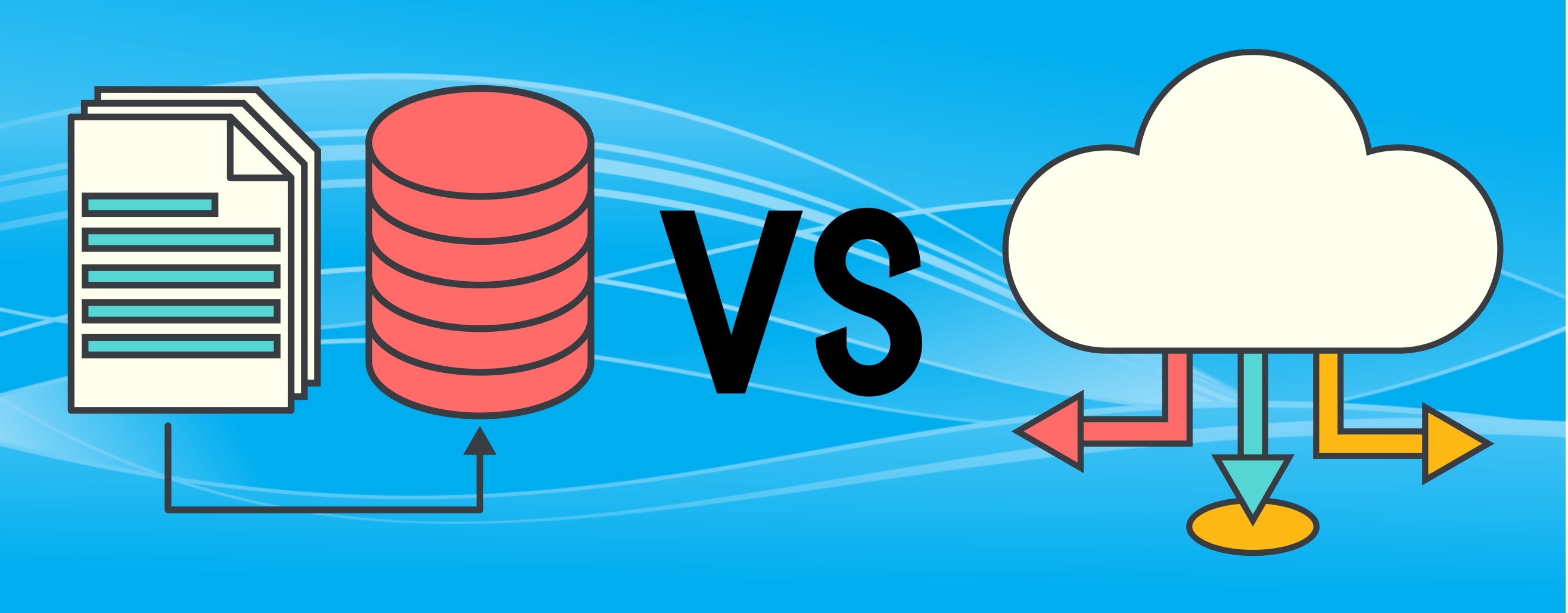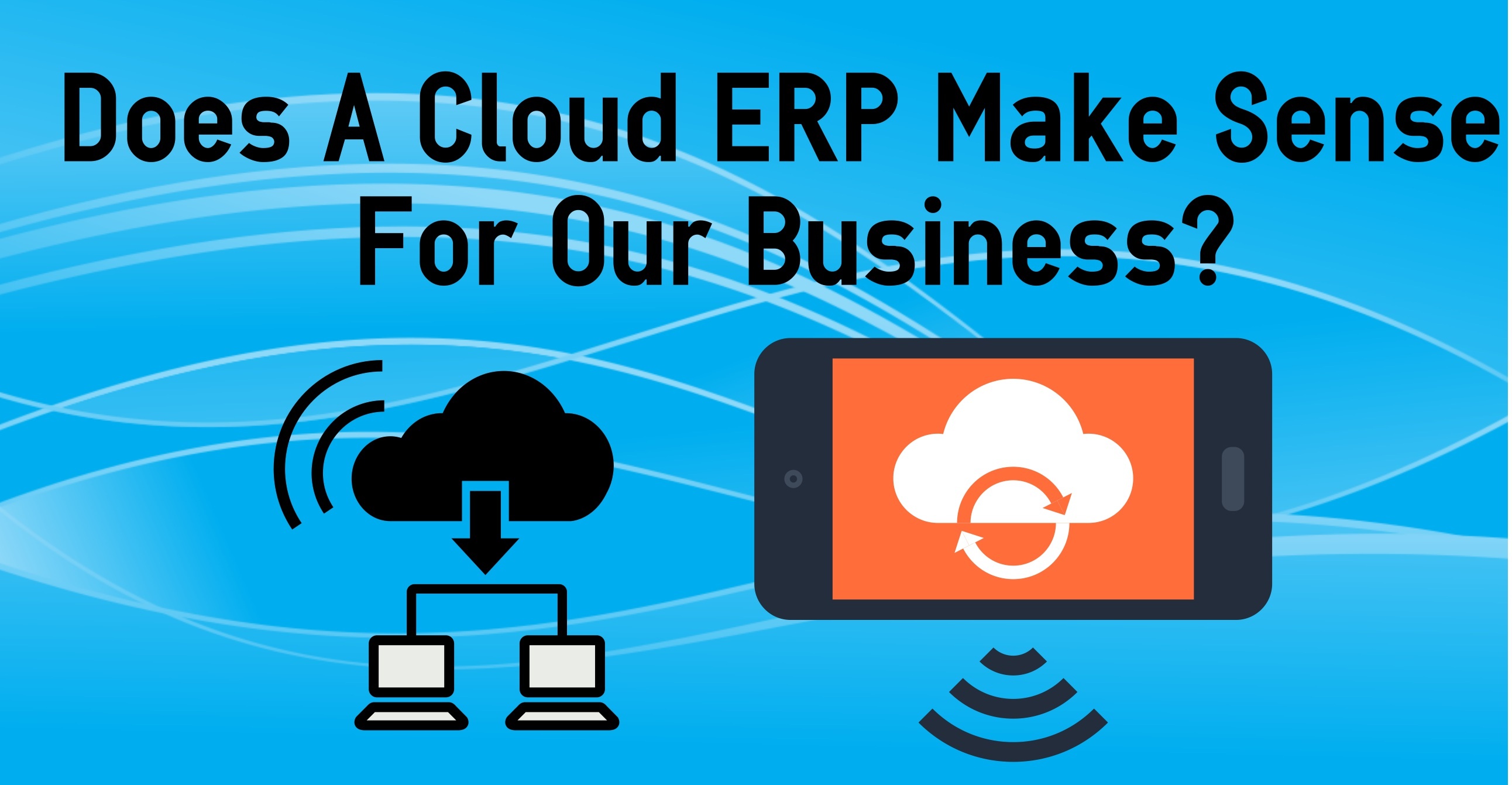As a top ERP consulting firm, we speak to a wide variety of different businesses on a daily basis. If there’s one thing that we’ve learned , it’s that all organizations are different. Even businesses that operate in the exact same space have different practices and processes. That’s why when we’re asked by companies if they should start moving to a cloud ERP system right now we don’t have an all-encompassing answer. As it turns out, there is usually a pretty definitive answer for each company. The secret is discovering which business factors make certain organizations better candidates than others.
As a certified Epicor ERP partner, we discuss the possibility of a cloud ERP with a lot of manufacturing companies. And the truth is, the future of software technology is quickly moving in this direction; however, it makes a lot more sense for some businesses than others. This means some businesses could financially benefit from moving as soon as possible; while others can choose to possibly transition in the future if they the market dictates.
Below, we have outlined some of the key factors that businesses should consider prior to making a decision on moving to a cloud-based enterprise system. These are the questions and factors that our expert consultants regularly discuss with our clients.

How to determine if a cloud ERP fits your business…
1.) Will the business support a cloud ERP (physically and internally)?
What do we mean by physically supporting the solution? It may seem intuitive, but many businesses don’t initially realize how important a fast, reliable internet connection is to cloud software systems. This affects very few businesses, but for some businesses this becomes a deal-breaker; especially those in rural areas, or in areas with poor internet service.
There are other physical restrictions that can cause a switch to a cloud ERP to be a difficult project as well. If an organization is heavily invested in maintaining and managing their own data, the practices and processes associated with this can be rather large; especially if the data isn’t well-organized or maintained (we see this often with large legacy systems with 15+ years of operation). This means that moving to a cloud ERP, and a cloud data model, could be a very time and resource intensive project. Projects like this require a larger goal than simply moving to the cloud. Business must be organizationally-ready for major change and prepared for a major project.
The second form of support is equally important. Any new software implementation will require best practices in change management. However, organizations moving to a cloud ERP have some great new tools to work with. However, it’s important to recognize that some of these beneficial new tools may not be well-adopted by the organization, so it’s important to determine the fit ahead of time.
Cloud ERP features for employees include; greater remote access, mobile availability, and more. Organizations that believe their business could benefit from these features should strongly consider a cloud ERP system. If a business has a lot of remote users, or people working from the field, these components can save massive amounts of time. Unfortunately, these elements cannot simply be installed and implemented without fanfare. These features must makes sense for the business investing in them, and they must ensure employees are properly trained and adopt these new solutions to achieve the full benefit. You can read more about adoption strategies here.
2.) Will turning over data management control benefit your business?
Unless your organization specializes in data-management, there’s a good chance this is not your core-competency. There are few businesses out there that do a superb job of managing their own data. As systems grow, so do databases. As big data evolves, companies are finding it harder and more cost-intrusive to manage and store all of their own information. Business that believe they could benefit from having internal IT focus on the system processes and mechanism — rather than the data — should consider a cloud ERP system.
On the flip side, many businesses that do not have unmanageable databases, may not have an immediate need for a cloud system, and could waste money moving to the cloud for data management purposes alone. If your data isn’t growing rapidly, and the organization is properly managing and maintaining your data today, making the decision on this premise alone may not make sense.
3.) How important are software upgrades?
Could your company benefit from having the most up to date software available at all times? The answer seems like a no-brainer, but the truth is that processes are more important than software.
Cloud ERP’s operate by rolling out updates to all subscribers whenever new versions are released; meaning all users have access to the most up to date software available at all times. This is only a benefit to a company if they know how to embed new features and technologies into their practice.
For example, let’s say a new update is release for your cloud ERP. The new update may have new functions that help streamline how scheduling for field maintenance could be structured. If your business will not take the time to adjust it’s processes to account for these new features, its entirely possible the update will not benefit your company at all.
Ultimately, this is one of the greatest benefits to cloud software; however there are a lot of organizations that fail to retrieve this benefit due to their lack of agility in adjusting processes. Business leaders hate forking out hundreds of thousands of dollars for software that is already out of date. But, if your organization has very rigid business practices, this may not benefit your company as much as others.
4.) Is your business interested in remote access and integrating systems?
We discussed this a little bit above; however, if your business is finding itself with more and more remote employees, a cloud ERP system is much better equipped for that type of arrangement. This extends to things like mobile use. Manufacturing ERP systems, like Epicor, maintain an easy-to-use mobile website, iOS app, and android app; giving users a wide assortment of availability and access options. This is really only beneficial if the organization will take advantage of these features. For many businesses this is a game-changer, for others, it’s completely irrelevant.
Another major benefit of cloud ERP is it’s increased flexibility in terms of integration ease. More and more organizations are seeking to achieve a single source of truth for their data. This means integrating CRM, ERP, marketing automation, and HR systems to ensure that the data is properly aligned and that nothing slips through the cracks. A cloud ERP system is better equipped to facilitate this kind of integration.
Most organizations would benefit from integrated systems, but there are always exceptions. If remote access and systems integration are elements that could benefit your business, a cloud ERP system is worth consideration.
Wrap up
Ultimately, all these factors should be taken into account when considering a move to the cloud. Businesses make the move every day, and the success of the move largely depends on how well their company prepared to benefit from a cloud ERP. If your business is currently considering this kind of system change you should contact our enterprise software experts to further discuss the merits of a move like this for your organization. We’ve successfully helped dozens of businesses make the transition, and have talked a few out of it as well. Visit our services page for more info, or download our e-book below.



